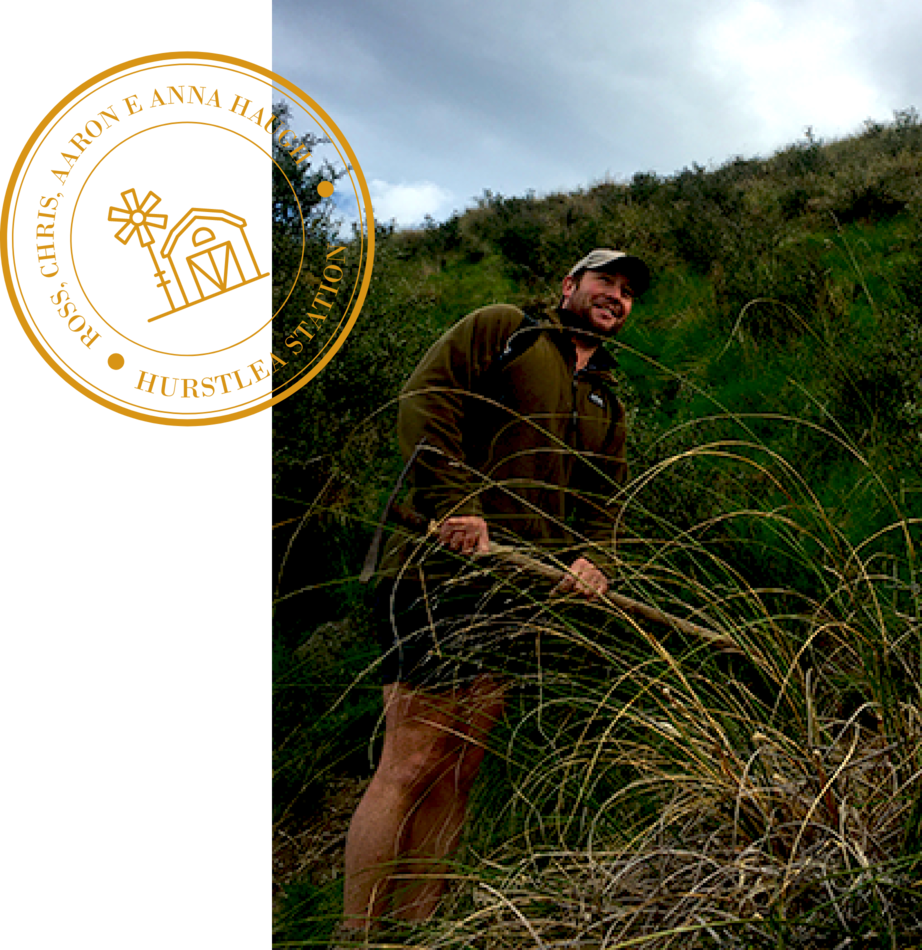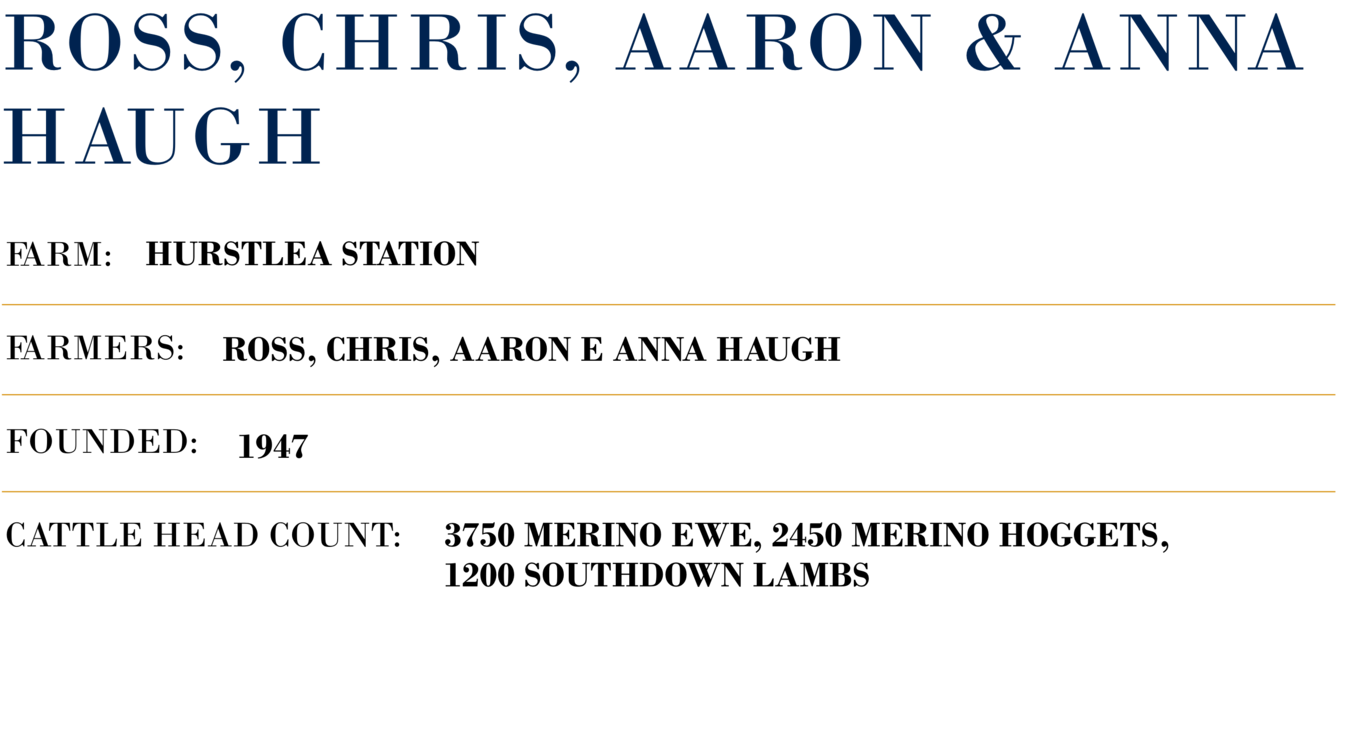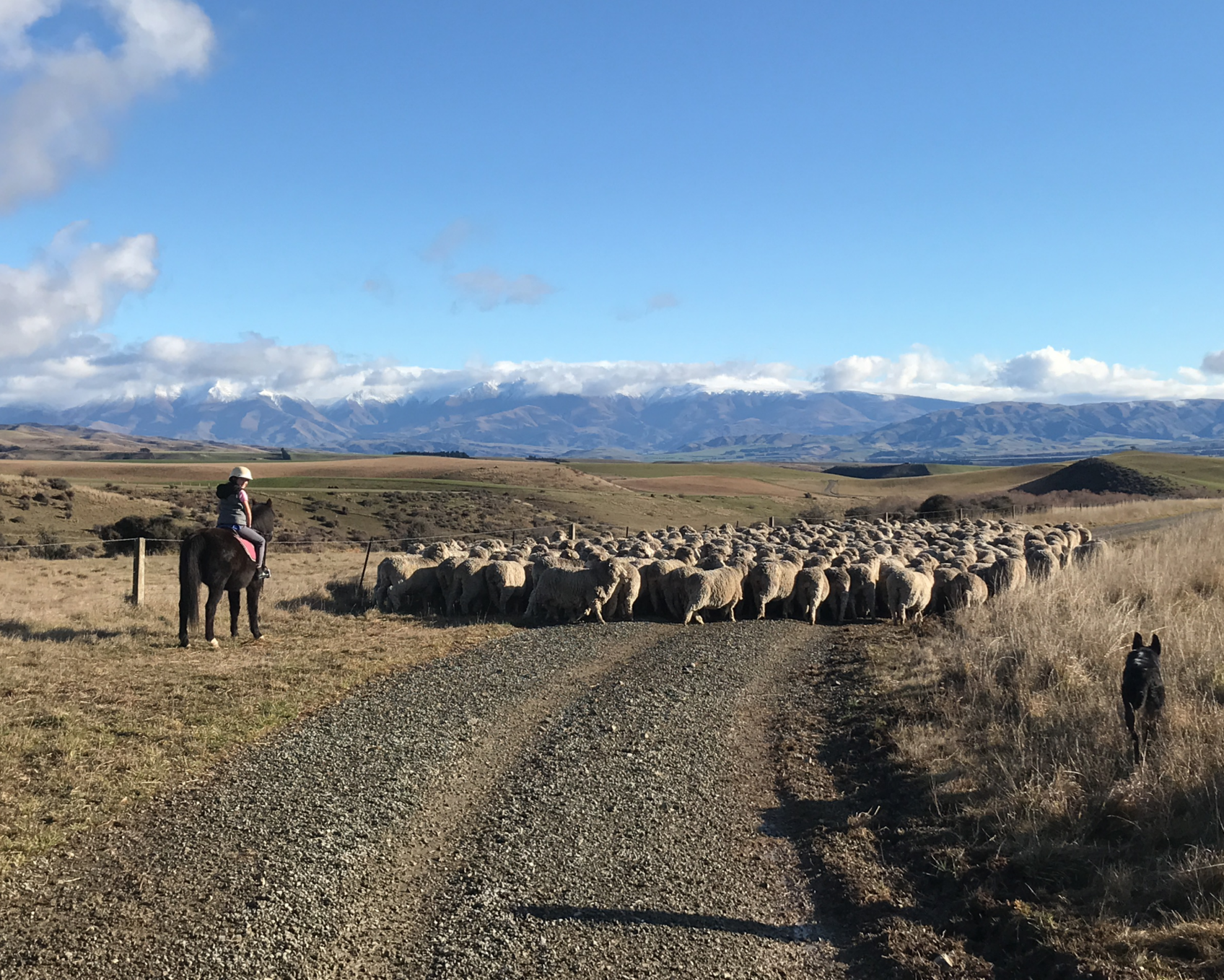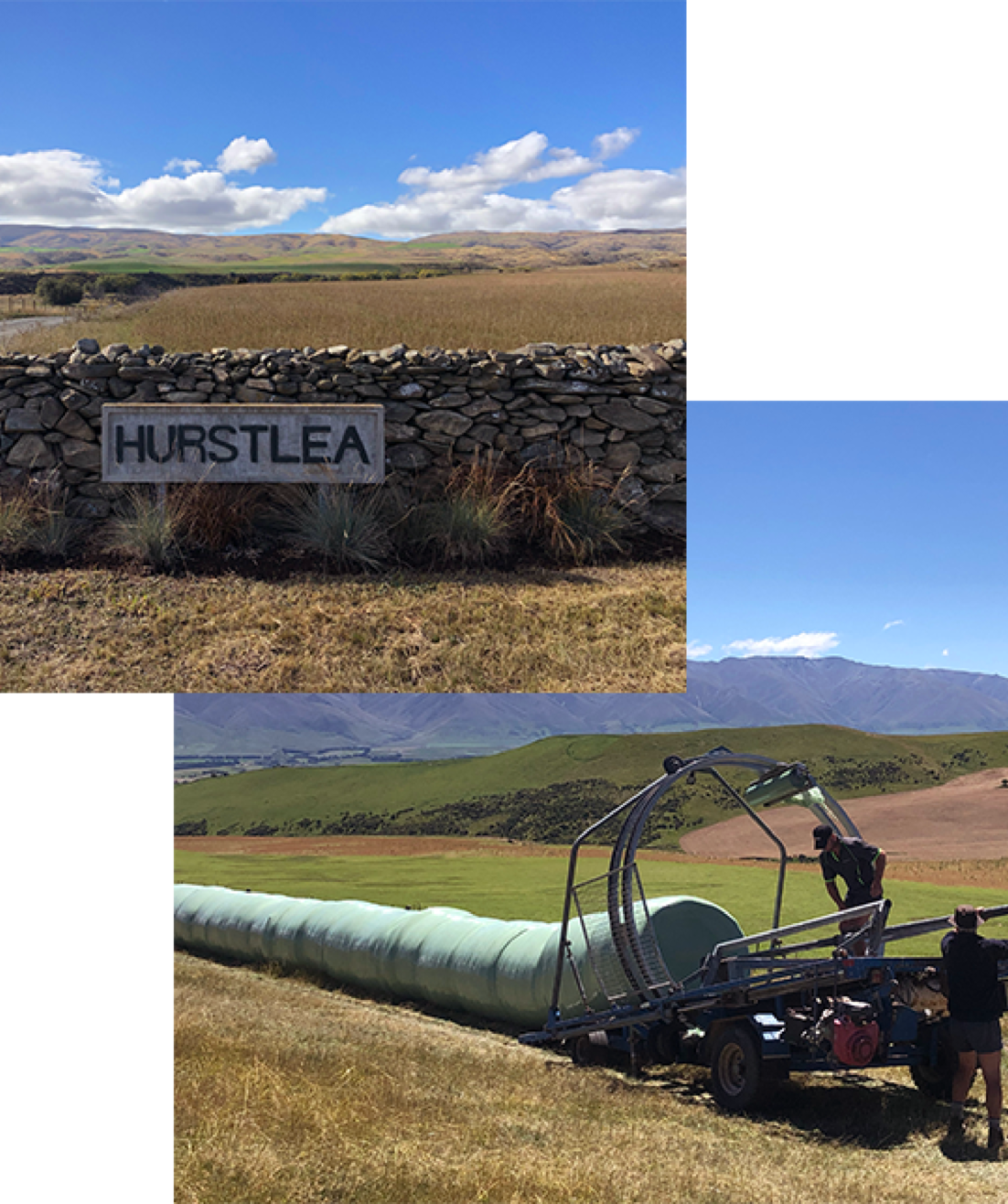


“If you love what you do then you will never work a day in your life”.
Passion, enthusiasm and much love for their work: this is what transpires from Ross Haugh’s words,
as he and son Aaron take us behind the scenes to reveal the secrets behind the production of the best Merino wool.
More than a career, this a true passion.
We are at Hurstlea Station, located in the Hakataramea Valley, in South Canterbury, New Zealand, where Aaron works alongside father Ross with the support of their wives Anna and Chris. The farm was purchased by the family back in 1947; father and son represent the third and fourth generation of a family tradition rooted in dedication, strong values and a deep respect for the environment.


Working on the farm in close contact with nature, the animals and weather challenges is part of the family’s DNA, and drives everyone to fully embrace their passion and keep striving to do their best.
Ross started working on the farm in 1978 alongside his father Alan. 45 years of experience have allowed Ross to teach Aaron the ropes, while also passing down his great passion and enthusiasm. The informal and laidback atmosphere that reigns on the farm makes everyday life easier while also making daily operations more seamless and fluid. “Being a father/son operation, we are less formal than farms that employ staff. We discuss our plans over a cuppa or a cold beer. The peak times of the year can become a full family affair with everyone helping at tailing time or hay harvest”.
Solutions are sought over a cup of coffee and busy times that require extra work see the family come together and collaborate like a proper team able to rise to challenges in critical conditions.


Family, passion and respect for the environment: these are some of the main ingredients behind the farm’s success. Sustainability plays a major role as the key mission and deciding factor behind every process. “We believe that farming sustainably is a commitment to ensuring that the land you live and work on will continue to be able to be farmed for generations to come. We try to work with the seasons in order to minimise the impact on the land. We don’t over graze blocks and minimum tillage aids with keeping the soil intact. We have destocking strategies in place to protect the land and the health of our animals.”